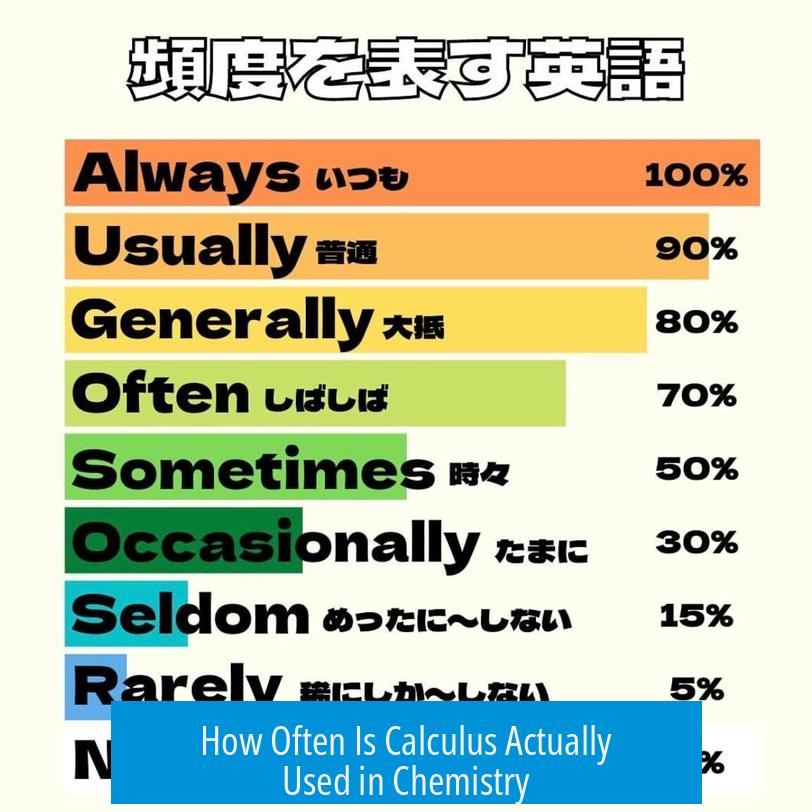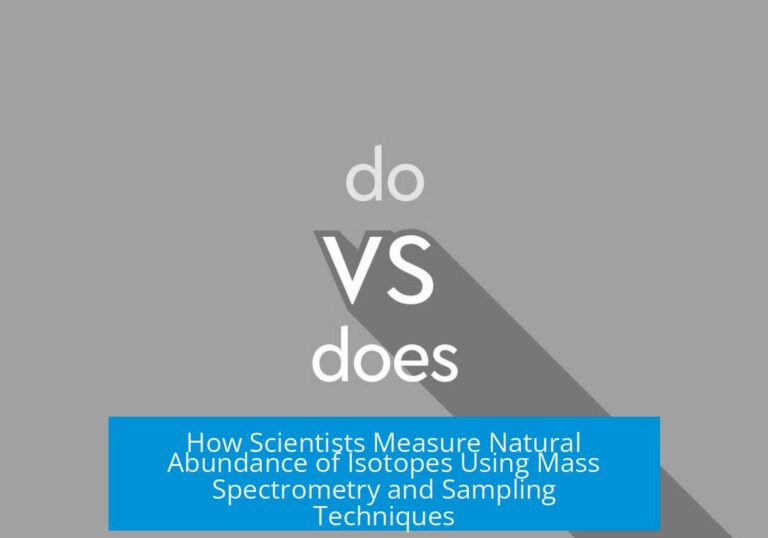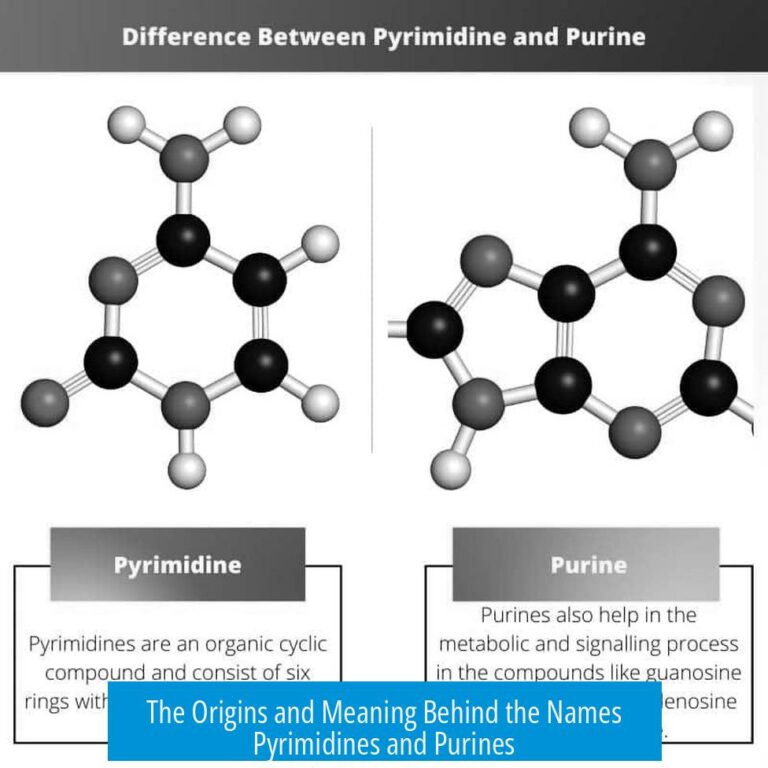How Often Is Calculus Actually Used in Chemistry?

Calculus usage in chemistry varies widely depending on the branch, with physical chemistry and related fields relying heavily on it, while organic and environmental chemistry see much less frequent use. Despite software handling most calculations today, understanding calculus principles remains essential across many chemistry disciplines.
Calculus in Different Chemistry Branches
Physical Chemistry and Related Fields
Physical chemistry is the area where calculus is most frequently applied. It involves concepts requiring understanding rates of change, partial differential equations, and integrations. Quantum chemistry and molecular thermodynamics, subfields of physical chemistry, extensively use calculus to describe particle behavior and energy states.
Students typically encounter calculus deeply in physical chemistry courses, where Calculus 1 and differential equations are essential. Many physical chemists use calculus daily, especially for modeling reaction kinetics and quantum mechanical systems.
Analytical Chemistry
Analytical chemistry often uses calculus in data interpretation. Calculus is crucial in calculating areas under curves from chromatographic peaks (e.g., GCMS and LCMS output) to determine concentrations. Software performs these integrations, but chemists must understand the reasoning behind these calculations to interpret results accurately.
First and second derivatives play a significant role in analyzing titration curves to locate inflection points. Although software automates these tasks, knowing how calculus is applied helps troubleshoot and validate data.
Organic Chemistry
Organic chemistry generally lacks direct use of calculus. Typical organic synthesis, reaction mechanisms, and molecular structures do not require advanced mathematics beyond algebra and basic arithmetic. Many organic chemists report almost no need for calculus in their daily tasks.
Nevertheless, some areas that border with physical or computational chemistry might involve calculus. However, for the majority of organic chemistry work, calculus is not necessary.
Inorganic Chemistry
Inorganic chemistry involves calculus at a more limited level. Its primary use is in plotting and interpreting graphs that may involve first and second derivatives. Understanding these derivatives helps extract physical meanings from data. Apart from this, algebra and linear algebra carry more weight than calculus in this branch.
Biochemistry
Calculus usage varies in biochemistry depending on specialization. While some biochemical areas focusing on metabolic rates or enzyme kinetics may use calculus concepts, other branches like organic synthesis in biochemistry may not involve calculus at all. Partial differential equations occasionally appear in biochemistry modeling, linking it somewhat to physical chemistry.
Environmental Chemistry
Calculus usage is minimal or essentially absent in environmental chemistry. Most environmental analyses rely on algebraic and statistical methods rather than calculus.
The Role of Software in Calculus Application
Modern chemistry often delegates calculus computations to software tools. Chromatography data processing programs like Empower calculate areas under peaks automatically. Thus, chemists rarely perform integral or differential calculus by hand in routine lab work.
Despite automation, understanding calculus basics remains critical. It allows chemists to verify if outputs make sense, diagnose software errors, and grasp the underlying phenomena in experiments.
Why Understanding Calculus Is Still Important
Calculus explains change—an essential concept in chemistry where reaction rates, concentration changes, and dynamic equilibria are commonplace. Even if direct calculation is rare, the principles guide how chemists think about and interpret chemical processes.
Calculus knowledge supports deriving equations used to model chemical systems and interpret multidimensional data. It is the foundation for understanding phenomena that vary continuously over time or space.
Calculus in Chemistry Education
Chemistry curricula emphasize calculus mainly in upper-level courses and specialized subjects like physical chemistry and quantum mechanics. A solid grasp of Calculus 1, often coupled with differential equations and sometimes linear algebra, is generally required for chemistry majors.
Many students find Calculus 2 challenging but necessary for advanced chemistry topics. For those pursuing graduate studies or mathematical chemistry fields, calculus becomes indispensable.
Calculus and Chemistry Career Paths
Job requirements dictate calculus usage frequency in chemistry careers:
- Synthetic chemists and medicinal chemists often use little to no calculus in daily work.
- Physical chemists, computational chemists, and chemical engineers rely on calculus regularly.
- Analytical and validation engineers frequently employ calculus concepts to analyze data.
- Environmental chemistry roles rarely demand calculus skills.
Generally, if a role requires complex modeling or quantitative analysis beyond stoichiometry, calculus or its principles come into play.
Practical Examples of Calculus in Chemistry
- Calculating the area under chromatographic peaks to determine analyte concentration.
- Analyzing reaction kinetics using derivatives to find rates of change.
- Applying partial differential equations to model quantum mechanical behavior of particles.
- Using second derivatives to identify inflection points in titration curves.
- Deriving thermodynamic relationships and equations of state from first principles.
Common Misconceptions About Calculus in Chemistry
- Calculus is rarely done manually but the concepts are integral to comprehension.
- Software tools do not eliminate the need for understanding calculus principles.
- Calculus is not equally important in all chemistry areas; its relevance depends on specialization.
- One can succeed in chemistry careers with limited calculus use, especially outside physical or computational chemistry.
Advice for Learning and Using Calculus in Chemistry
Students and practitioners should view calculus as an essential skill rather than an insurmountable barrier. Resources such as “Applied Mathematics for Physical Chemistry” by Barrante are recommended for improving mathematical skills relevant to chemistry.
Peer tutoring, regular study habits, and leveraging online resources can ease the learning process. Even if calculus is not frequently used in everyday tasks, mastering the concepts strengthens overall chemical understanding.
Key Takeaways
- Calculus is heavily used in physical chemistry, computational chemistry, and molecular thermodynamics.
- Analytical chemistry applies calculus principles regularly, though software often performs the calculations.
- Organic and environmental chemistry see minimal direct use of calculus.
- Understanding calculus concepts is critical for interpreting chemical changes, even when calculations are not done by hand.
- Chemistry education emphasizes calculus mainly in upper-level courses and specialized fields.
- Career use of calculus varies widely; it is essential for some roles and rare for others.
- Learning calculus improves comprehension of chemical phenomena and aids problem-solving in advanced chemistry.
How frequently is calculus used in physical chemistry compared to other chemistry branches?
Calculus is used quite a bit in physical chemistry, much more than in other branches. It’s essential for understanding quantum mechanics, molecular thermodynamics, and computational chemistry. Other fields use it less often.
Do chemists still perform calculus by hand, or is software used for calculations?
Most calculus is done by software like chromatography programs. However, understanding the underlying principles of calculus remains important to interpret results and catch errors properly.
Is calculus important for analytical chemistry, and in what contexts?
Yes, especially for tasks like calculating areas under peaks in chromatography and finding inflection points in titration curves. Derivatives and integrals help analyze data even if software performs the math.
How often does organic chemistry rely on calculus?
Calculus is rarely used in organic chemistry. Most calculations do not involve calculus, unlike physical chemistry where it is fundamental.
Why is it important to understand calculus principles even if you rarely perform the calculations yourself?
Calculus explains rates of change and multidimensional effects, which are common in chemistry. Knowing these principles helps in grasping reaction rates, equilibria, and interpreting experimental data correctly.





Leave a Comment